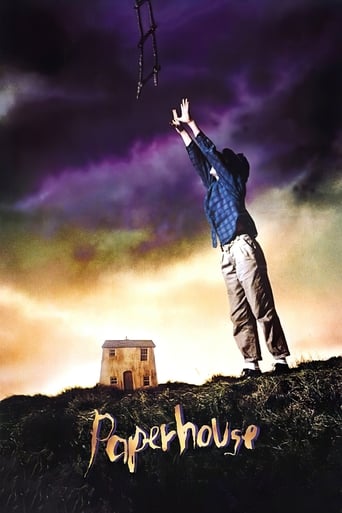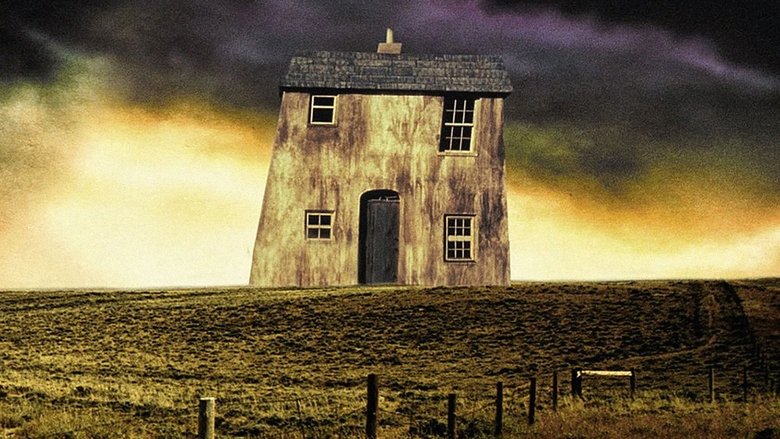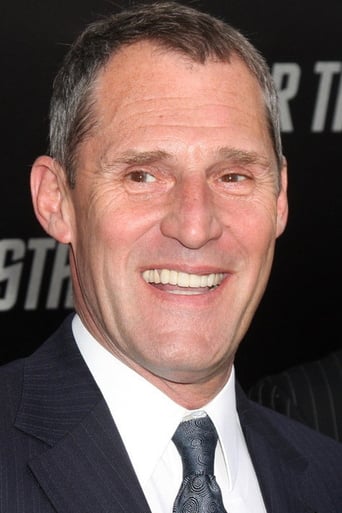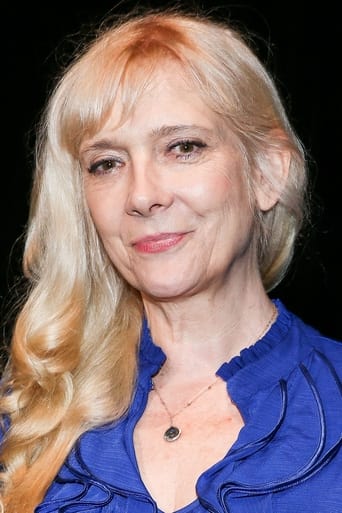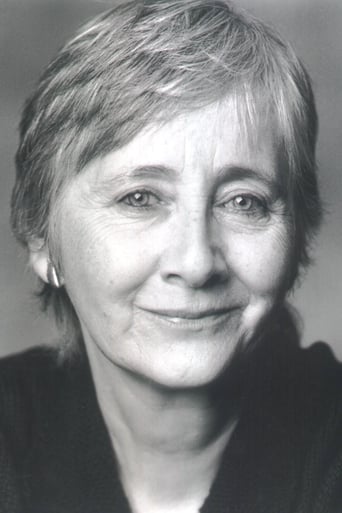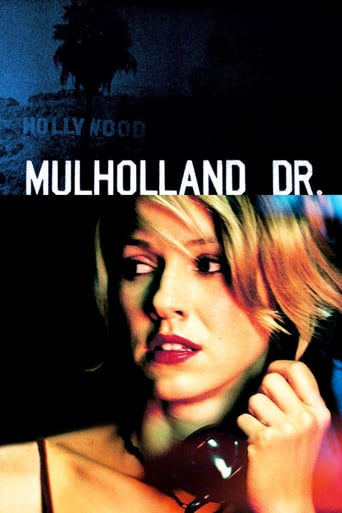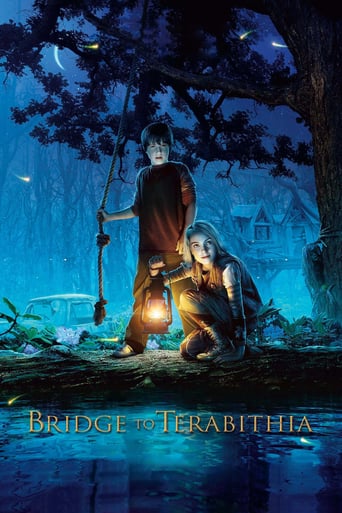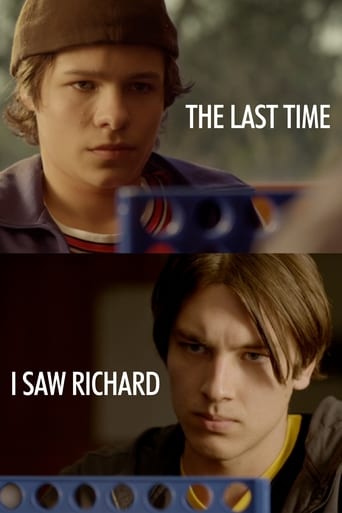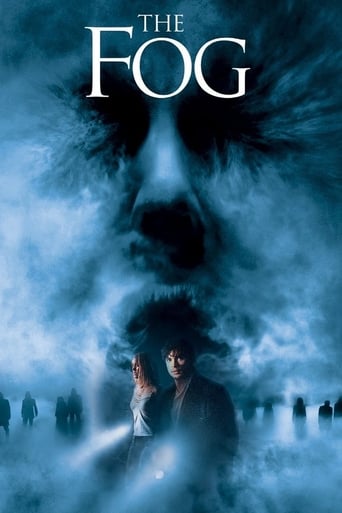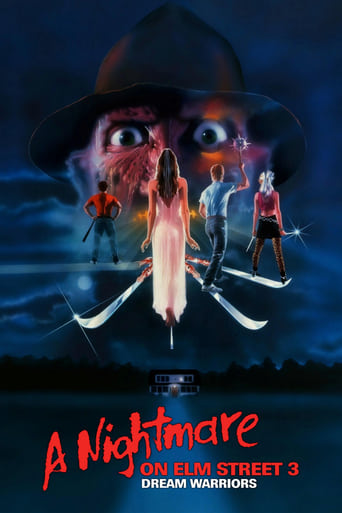Paperhouse (1988)
A young girl lost in the loneliness and boredom of reality finds solace in an ill boy, whom she can visit in a surreal dream world that she drew in her school composition book.
Watch Trailer
Cast
Similar titles
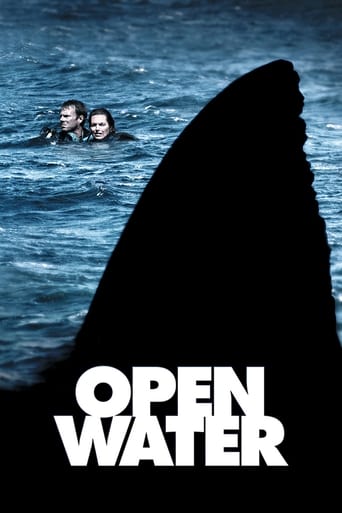
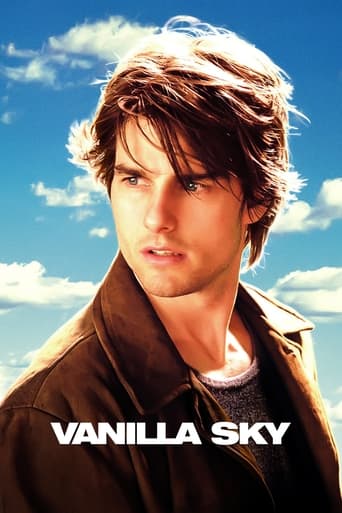
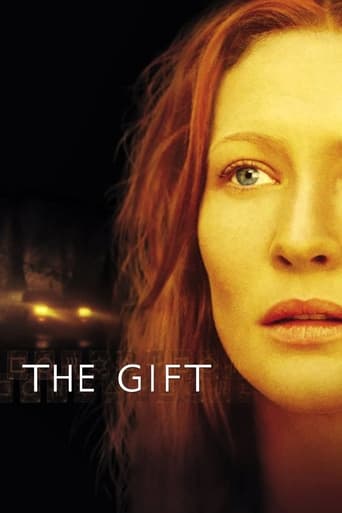
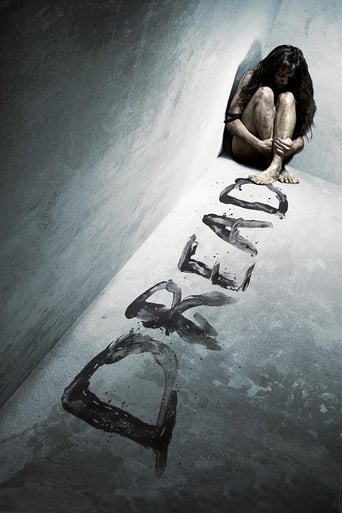
Reviews
So much average
If you don't like this, we can't be friends.
For all the hype it got I was expecting a lot more!
Absolutely Fantastic
PAPERHOUSE is an immersive and interesting British horror/fantasy film of the 1980s that has enjoyed some measure of cult success since it was first released nearly 20 years ago. It's certainly an oddball movie, low budget and rather slow-paced, but my advice is to stick with it because it's a journey that does pay off. This is an imaginative tale about a girl who goes on a psychological journey into a make-believe world with some very odd characteristics.It's one of those films which would be spoilt by saying too much about it. The main thing I can say is that this is classic British 'weird' - a genre with a fine literary tradition - and the titular construction is very well realised and memorable. The young cast give naturalistic performances, backed up by old-timers like Ben Cross, and the spooky atmosphere is second to none.
A headstrong eleven year old girl, bedridden with fever, visits in her sleep the house the doodled on a drawing pad, but is she a child with a vivid imagination undergoing dream therapy or just a precocious child with a magic pencil set? The film is uncertain about the answer and, as a result, is inconstant. Anna's dream world has all the surrealistic clarity of a subconscious vision, but the 'real' world isn't as convincing, and the connection between them is never clearly defined. It's too bad, because the premise is intriguing, but the details needed more thought, and the tone is far too portentous for its own good. Older kids may enjoy the film, but for discriminating adults what might have been a fascinating psychological fantasy is instead little more than another Twilight Zone retread.
Young Anna (Charlotte Burke) leads a lonely life: her mother (Glenne Headly) works all day and her father (Ben Cross) is working abroad; Anna doesn't get along at school, starting fights with classmates and teachers. To make matters worse, she starts having dizzy spells on her birthday, and in dreams she travels to a house she has control over through her drawings.This is the premise of Paperhouse, a movie by Bernard Rose, based on a novel by Catherine Storr, and which belongs to that persistent subgenre of movies about troubled children who mix their fantasy worlds with their real frustrations and problems; in recent years it has given us Where The Wild Things Are and Pan's Labyrinth and has been going on since Victor Fleming decided Dorothy didn't actually visit Oz but dreamed it up instead.Remarkably Paperhouse takes less inspiration from The Wizard of Oz and more from Roman Polanski's Repulsion, like in the feeling of loneliness, or using the father figure as a source of fear there's a tense sequence in which Anna's father comes into her dream to kill her with a hammer. The movie, however, brings nothing new to this fantasy subgenre.The movie has some storytelling problems. In one of the subplots Anna learns from her nurse the story of Marc (Elliott Spiers), a boy who can't walk and is dying. Anna, without knowing his look or anything about him, promptly imagines him and several details of his past in her dreams that turn out to be real. How she does that is never explained and the movie never decides whether it's trying to be a supernatural thriller or just the wild imagination of a sickly child. In fact this movie suffers from trying to be too many things at the same time: a horror movie, a love story, a family drama – so that it always falls short of successfully being anything at all.In spite of that there's a good emotional story somewhere in the movie, as Anna believes that through her drawings she can change Marc's fate. Everything that she draws happens in the dreams, so she draws Marc a pair of new legs, only to see them turning to dust. The moral is very simple: you can't change reality to your whim; growing up is accepting things as painfully as they are.Visually the movie is quite good – it's always fun to see how Anna's drawings change her fantasy world; at first she just sees it as a house surrounded by Stonehenge-like rocks in a deserted landscape, but then she draws the trees, the interior rooms, stairs and objects to fill the house with. Considering the movie clearly didn't have many resources to dispose of, the crew did a fine job making the house familiar but also otherworldly.Glenne Headly and the under-appreciated Ben Cross give good performances here, but the movie belongs to Elliott Spiers and Charlotte Burke, who strangely never made a movie again. People tend to despise child actors, but the two practically carry the movie with their chemistry and genuine feeling.A note must go to the music by Hans Zimmer. His career was just starting when he composed the score for Paperhouse and the style is similar to Rain Man and Black Rain, two of my favourite scores by him. People who only know Zimmer from his loud, synth-heavy modern style (which I also love) would be surprised to see the elegant and melancholy music he composed here.All in all, Paperhouse should leave anyone looking for a good time satisfied. The movie has a fast pace and ends before the viewer knows it, leaving him marvelled with occasional flashes of visual creativity, solid performance and a heartbreaking finale.
This is a wonderfully written and well acted psychological drama. It is not really a horror flick so those looking for something like The Ring or The Grudge will be disappointed. What really surprised me about this film was the intelligence and subtle attention to detail in the plot and the effort made to be internally consistent. I also appreciated the absence of Dr. Phil psychobabble or New Age revisionism. Rather than advancing an agenda, the filmmakers just told the story, told it well and let the viewer think about it. The sparse dreamscapes were reminiscent of Wyeth paintings and amazingly effective. A great example of how to make a good film on a small budget, without big studios, star actors, big-name directors (this was far better than many of Hitchcock's films), special effects or "clever" plot twists.
